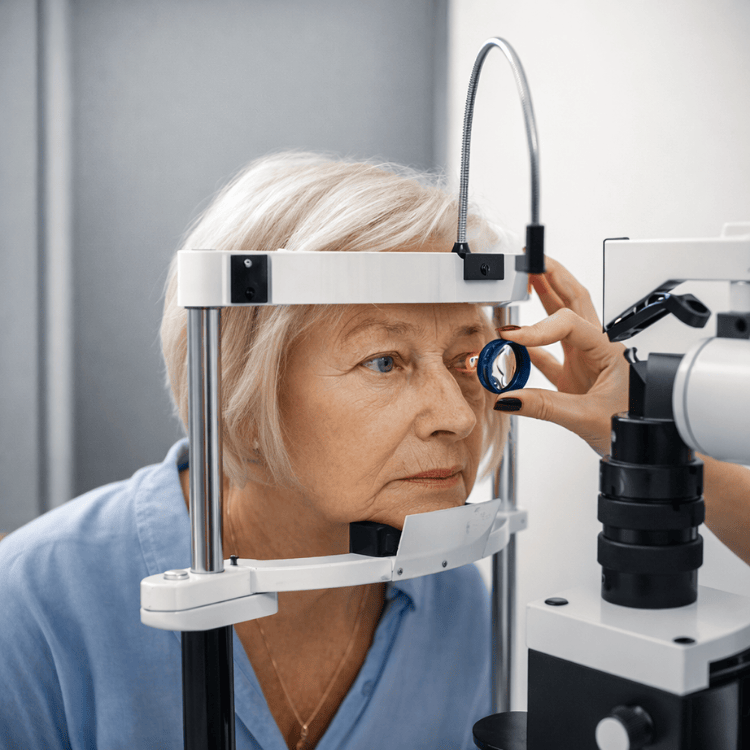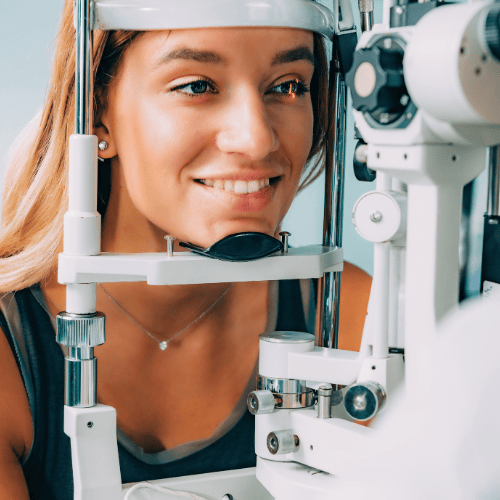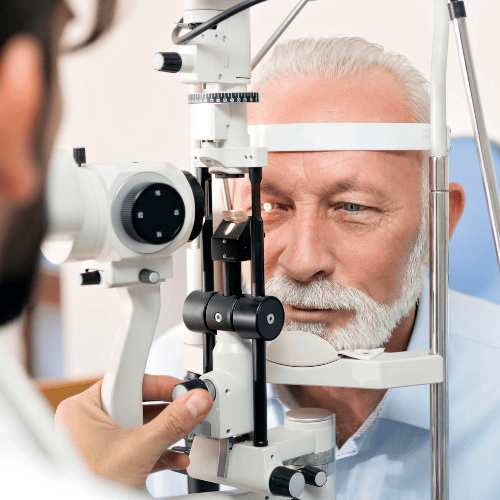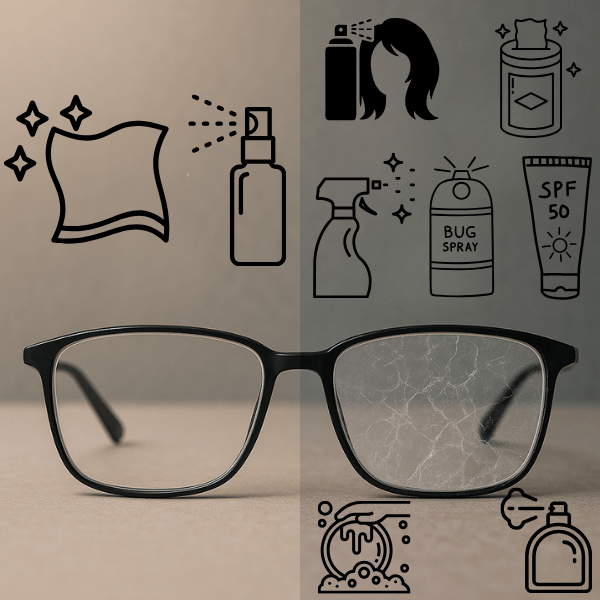KEEPING YOUR EYES SAFE WHILE SWIMMING
As the temperatures soar in Alberta this month, many of us look to cool down by heading to the beach, the pool or the lake. While it’s likely that most don’t consider swimming to be particularly dangerous to our eyes, there are a few hazards to be aware of before you jump in.
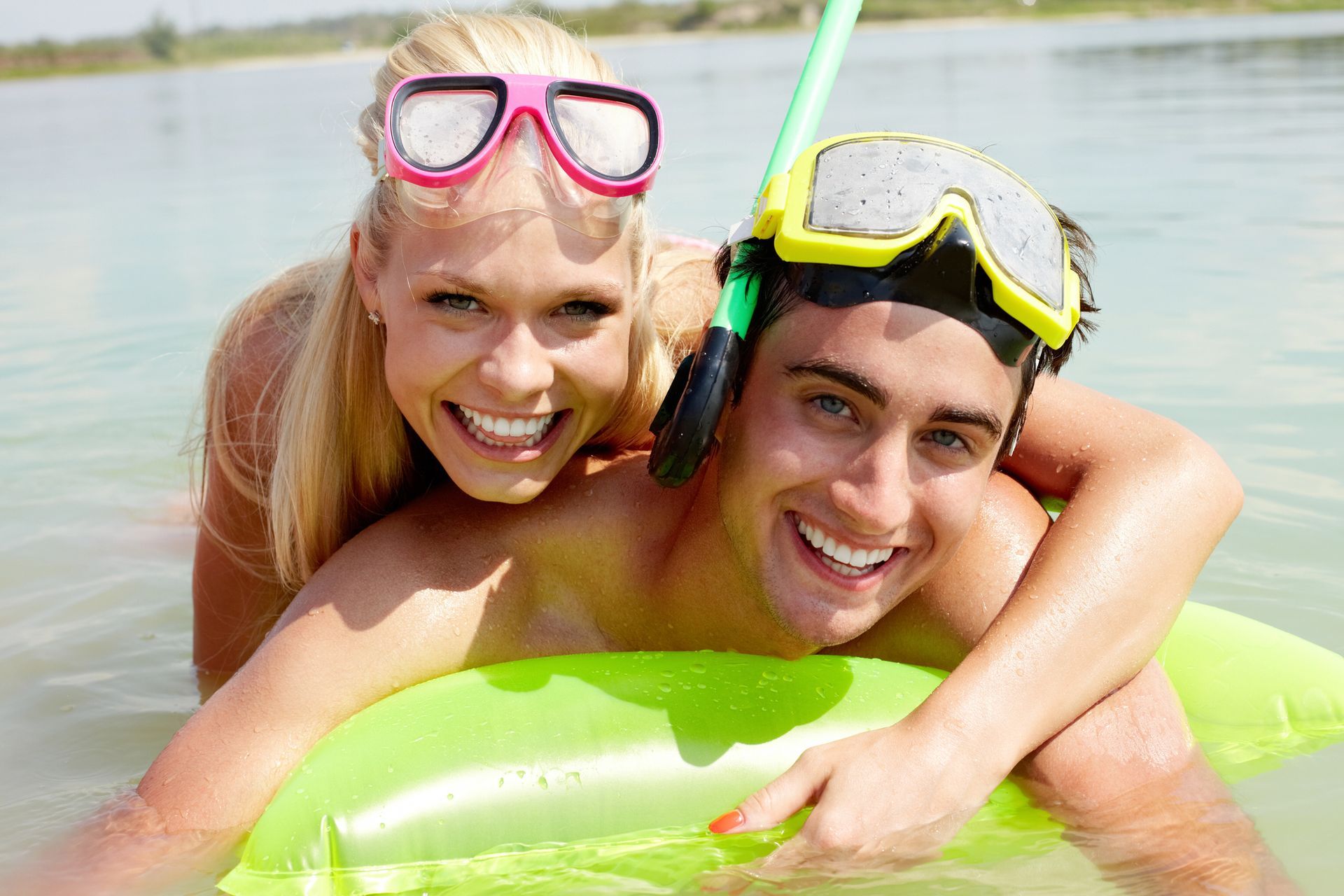
Infection
Bodies of water that are shallower are at risk of causing eye infections due to their higher temperatures. While bacteria are the most common agents causing trouble in the eyes, another rare but serious infection can result from a parasite called Acanthamoeba, commonly found in all types of water from lakes to rivers and oceans. People who wear contact lenses are particularly vulnerable to Acanthamoeba infection, which can be very difficult to treat and even cause permanent vision loss. It’s not recommended to wear contact lenses while swimming due to the risk of Acanthamoeba infection.
Sun damage
Ultraviolet light from the sun is intensified when we are exposed to large bodies of water, because of reflection.
Chlorine irritation
Red, irritated eyes, burning, and blurred vision can result from exposure to chlorinated pools.
Here are 8 handy tips to remember to avoid having your lake holiday interrupted by an eye problem:
- Remove contact lenses before swimming – due to higher risk of infection. Disposable lenses that are replaced on a daily basis reduce the risk, however, prescription goggles are the safest way to correct your vision while swimming.
- Wear sunglasses – follow the advice in our previous article about choosing proper sunwear, and use them as soon as you get out of the water.
- Avoid swimming in lakes that are too warm – to avoid exposure to infectious agents such as bacteria.
- Don’t rub your eyes – this may cause scratches on your cornea which are an opportunity for infection, and may also introduce bacteria and other irritants.
- Use artificial tears – following a swimming session, add a few drops of preservative-free artificial tears to re-establish a normal tear film and help remove any contaminants you may have been exposed to.
- Wear goggles – well-fitted goggles will protect your eyes from a variety of hazards while swimming.
- Consult your MVO Optometrist – if you experience any of the following symptoms in your eyes after swimming: pain, redness, discharge, excessive tearing, blurry vision, feeling of something stuck in your eye, excessive light sensitivity.
A bit of attention to this precautionary advice will avoid causing an unwelcome interruption to your beach vacation. Enjoy your summer holidays!




